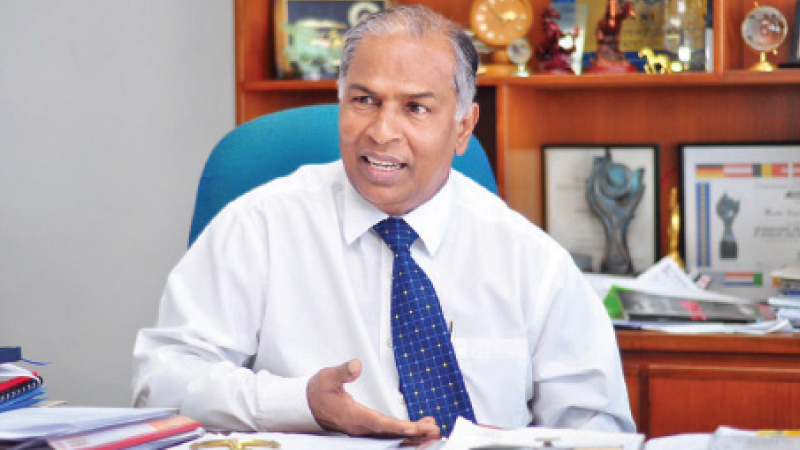Sri Lanka for the first time in its history has been able to save over US$ 300 million (almost Rs. 50 billion) from not importing milk powder from overseas in 2020. This is a major plus point achieved due to the COVID-19 pandemic. Last year Sri Lanka only imported milk in limited volume according to the latest Customs data.
Chairman Pelwatte Dairies, Ariyaseela Wickramanayake said that even though COVID-19 has many negative factors to both humanity and the economy, it has resulted in taking Sri Lanka towards self-sufficiency in milk sooner than expected. “I am sure there will not be any milk powder imports for 2022.”
“Sri Lanka by then will also reverse the pattern in the milk powder industry and will join an ‘elite’ group of countries in the world that export milk powder.”
 |
| Plant in Buttala. |
In September, President Gotabaya Rajapaksa instructed to formulate both short and long-term plans to increase the local liquid milk production. These plans aim to meet the total local requirement. This is part of the government’s efforts to increase earnings of milk farmers. Currently, small-scale dairy farmers account for 85% of the current local liquid milk supply.
Wickramanayake was one of the first ‘single owned local investors’ to have a milk powder processing plant in Buttala. He introduced 100% locally made Pelwatte Milk Powder in 2006. He said we must remember that the 2020 import bill had a Rs. 50 billion saving from Milk Powder. This money went to the local farmers increasing their per capita income. “Hence the import restrictions had twin economic benefits, saving forex and increasing local farmer income.”
He said the saving is less than the cost of building Mattala Airport and a little higher than the cost for Phase 1 of Hambantota harbour and Moragahakanda irrigation project.
Wickramanayake said last year the local fresh milk production has increased and several new players have introduced locally produced milk powder and fresh milk to the Sri Lankan market. “In addition, the price of fresh milk offered to local farmers too has increased. NLDB pays around Rs. 130 per litre of fresh milk which is encouraging more people to invest in dairy for self-employment.” This price was around Rs. 90 per litre two years ago.
Currently, there are 1.3 million milking cows and only around 240,000 are milked.
Expressing his plans Wickramannayake the former Chairman of Maubima Lanka Foundation said that they had invested around Rs. 1.2 billion to build two milk powder processing plants in Kurunegala, and in the North. “We were the first to have a Spray Dry Milk producing Factory in Sri Lanka and we will install the latest machinery for our Kurunegala plant to be opened in May 2021.”


